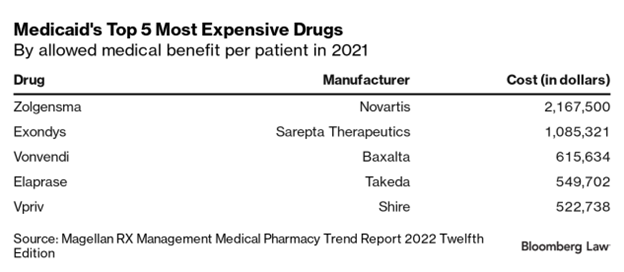MM Curator summary
The article below has been highlighted and summarized by our research team. It is provided here for member convenience as part of our Curator service.
[MM Curator Summary]: A KY legislator has introduced a block grant approach for Medicaid.
Clipped from: https://hoptownchronicle.org/state-senator-wants-new-health-care-system-with-medicaid-block-grants-to-local-governments/
It’s time to invent a new health care delivery system in Kentucky, and it should be driven by health-care providers, state Sen. Stephen Meredith, of Leitchfield, said in the keynote address at the Foundation for a Healthy Kentucky’s 2023 Howard L Bost Memorial Health Policy Forum, held Oct. 11 in Lexington.
Before making this assertion, Meredith pointed to a quote attributed to Abraham Lincoln and Peter Drucker: “The best way to predict the future is to create it.” Then he said, “Let’s do that. Let’s create a new health-care delivery system.”
The address was titled “How Do You Fix an Irretrievably Broken Health-Care System?”
Meredith spent decades as a leader in health-care administration before being elected to the Senate in 2016. When he retired as boss of Twin Lakes Regional Medical Center, now a subsidiary of Owensboro Health, it was one of the four financially strongest hospitals with under 100 beds in Kentucky. He was also CEO of the Grayson County Hospital Foundation, which employed most of the local medical practitioners and managed their practices.
Meredith, a Republican, is chair of the Senate’s Health Services Committee, co-chair of the Government Contract Review Committee, and a member of other committees, including the recently formed Family and Children Committee.
“He knows the challenges facing our health-care delivery system, because he’s seen them firsthand,” Ben Chandler, CEO president of the foundation, said in introducing him.
Meredith opened his address by listing several known challenges with the existing health-care system, including the “astronomical” cost of care that has resulted in the average person no longer being able to afford it.
He also called the “mass” of health-care professionals who are leaving the system “alarming” and called one of the largest insurance companies in the U.S. making a profit of $86.4 billion in the last year one of the “most damning indictments of our current health-care delivery system. “
He noted that the U.S. is spending $1.2 trillion on health care, but has some of the worst health outcomes.
“The problem is, we know what the issues are; we don’t act on the issues,” Meredith said.
He went on to point out that the state’s move to a managed-care program for Medicaid has been in place since 2012, “and we have not improved the health of our population.” Further, he said the state Medicaid budget was $10 billion to serve 1.3 million people, and that is as large as it should ever be.
“In inventing a new health-care delivery system in the future, we all have to agree and acknowledge, there’s enough money already in the health-care delivery system to take care of every man, woman and child in this country if we spend it the right way,” he said.
Further, he said, “If we’re truly improving the health of the population and we are getting people back to gainful employment, we should have enough money to take care of everyone.”
To do this, he said we must have a clear mission and vision for how to fix the system.
“If we’re all united in this, it’s quite simple,” he said. “We’re here to cure the sick, to help relieve pain and suffering, to give comfort to the dying and improve the quality of life for the people we serve. If we’re all united in that, doesn’t that move us in one direction.
“And one thing I haven’t mentioned is, it doesn’t say anywhere in there to make a profit. Now, I’m a capitalist to the nth degree, and I believe in making a profit. But it’s when you bring value to the system. You increase efficiencies, and you do it a better way. And we’re not doing that.”
He said changes should be made on the local level by moving to a Medicaid block grant program, which would allow local governments to determine how Medicaid dollars are spent, with an incentive to save money for other local purposes.
“If you improve the health of population, whatever savings you achieve, you get to keep to improve your community,” he said. “If you want to invest in your school system, you want to invest in the infrastructure, you want to invest in broadband, it’s yours to keep.”
Meredith said the main reason we don’t do such things is fear: “People don’t like risk. Fear keeps us from doing what we need to do.”
Melissa Patrick
Author at Kentucky Health News
Melissa Patrick is a reporter for Kentucky Health News, an independent news service of the Institute for Rural Journalism and Community Issues, based in the School of Journalism and Media at the University of Kentucky, with support from the Foundation for a Healthy Kentucky. She has received several competitive fellowships, including the 2016-17 Nursing and Health Care Workforce Media Fellow of the Center for Health, Media & Policy, which allowed her to focus on and write about nursing workforce issues in Kentucky; and the year-long Association of Health Care Journalists 2017-18 Regional Health Journalism Program fellowship. She is a former registered nurse and holds degrees in journalism and community leadership and development from UK.

